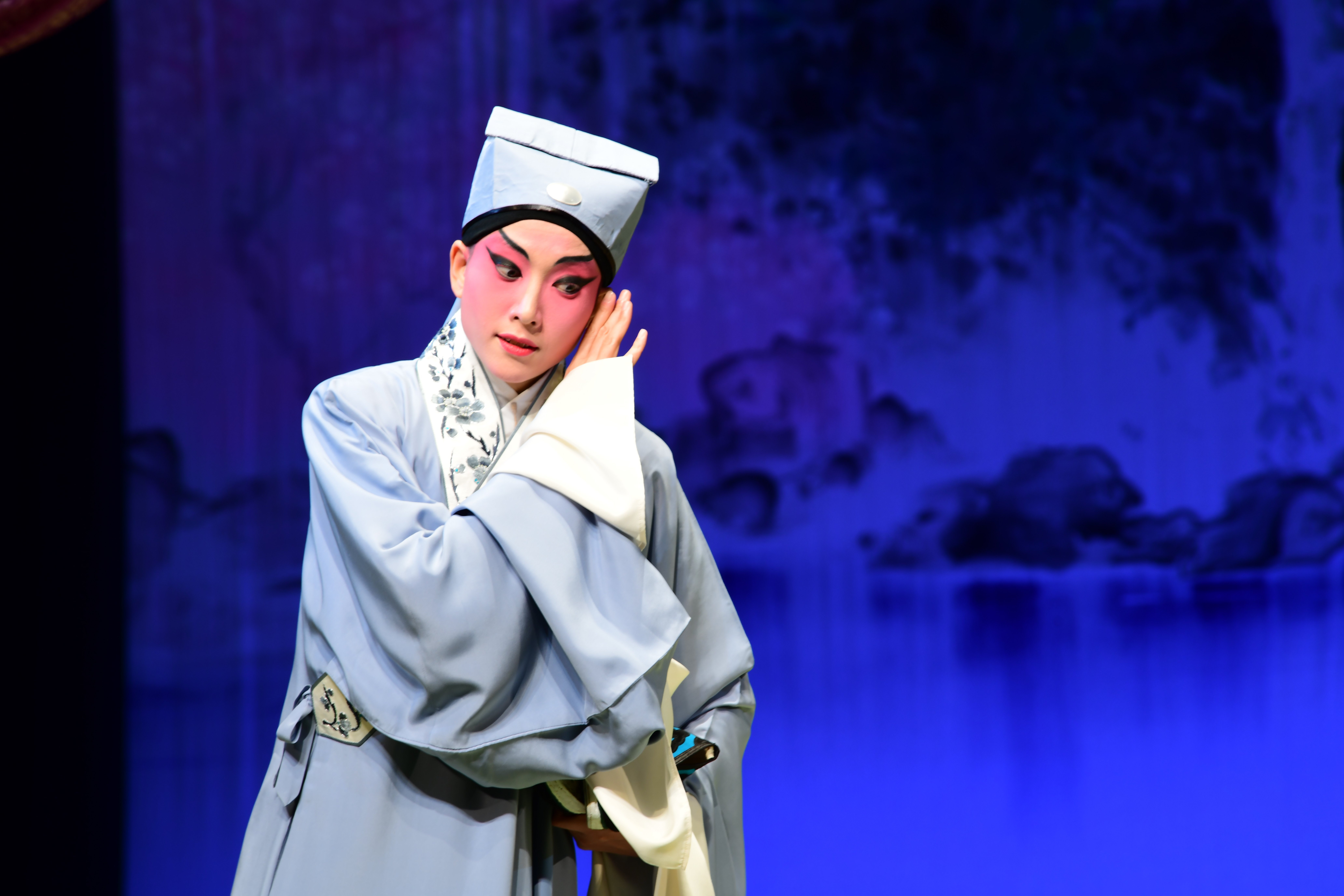Chan Chak-lui, Sam grew up watching Cantonese opera on TV as a child and has loved the art form ever since; she nurtured her interest as a secondary school student, continued through university and as a lecturer at a local university in Hong Kong. In 2016 Sam took the leap to sing professionally and hasn’t looked back. An advocate of passing on this rich art form to future generations, Sam takes an active role in teaching opera and the recording of historical materials. She talks to us about the role of Cantonese opera in Hong Kong.
For the benefit of visitors to Hong Kong, please explain a little about Cantonese opera and its role in Hong Kong.
There are at least 200 different variations of Chinese opera and Cantonese is one of them. It originates from Guangdong in southern China and has officially been part of UNESCO’s Representative List of Intangible Cultural Heritage since 2009. As I see it, Cantonese opera is a vivid history book that records the lives of Cantonese people from over the last 100 years – how lucky are we to be able to rewind the time and listen to the ‘pop music’ enjoyed by our great-grandfathers?
Why is Hong Kong such a good place to enjoy Cantonese opera?
You can enjoy a wide variety of Chinese operas in Hong Kong, including Peking/Beijing opera and Kunqu. The city also has more shows of Cantonese opera than anywhere else, and is undoubtedly the best place to enjoy it because Cantonese is the main dialect.
The Xiqu Centre has attracted much publicity since opening in January, what’s its significance for Cantonese opera?
The word Xiqu means ‘Chinese opera’ and with the opening of the centre, it places the artform at the centre of modern-day life. The centre has begun to draw attention and people are likely to associate the building with Cantonese opera. I have performed a few times at the Tea House Theatre, which shows condensed versions of operas and has several performances each week. Xiqu Centre offers a good introduction to Cantonese opera for audiences while being good for performers.
What influence does Hong Kong Arts Month have on local culture?
I think the government has done well to promote Hong Kong as an Asian hub for arts and culture. Projects like Tai Kwun, Xiqu Centre, PMQ (Police Married Quarters), Mei Ho House in Shek Kip Mei demonstrate that there’s more to do in Hong Kong than shopping and dining. Visitors can engage with culture and the arts and at the same time see how it’s part of everyday local life; they too will experience Hong Kong like a local.
Which other cultural attractions do you suggest people visit in Hong Kong?
Go to Yau Ma Tei, a lively district to visit the historic Yau Ma Tei Theatre. It’s worth a walk around, even when they don’t have performances.
Xiqu Centre, 88 Austin Road West, Tsim Sha Tsui, +852 2200 0022. westkowloon.hk/en/XiquCentre
Deep dive into Hong Kong’s cultural hotspots…


